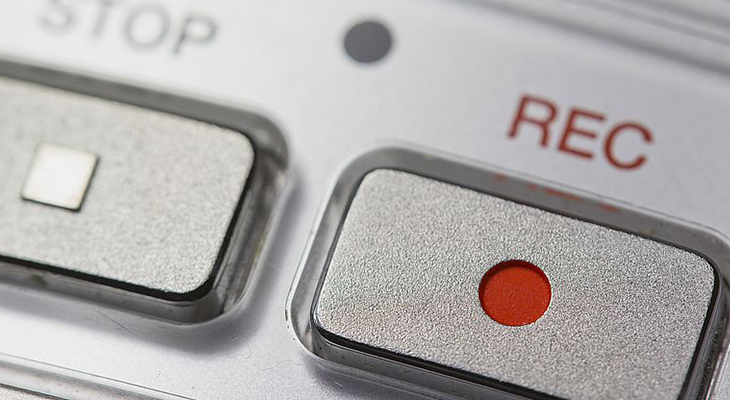
What you consider concrete evidence may be unreliable and baseless proof in the eyes of the law. Most people fail to understand that what they consider evidence sometimes has no value in court. In short, legal logic is highly different from widely accepted beliefs and perceptions. Why? Because as a person, you may believe whatever you hear from a friend about an incident and might even bet your life over their words since they are the most trustworthy in your opinion.
However, the law does not consider any conversations even between the most trustworthy people outside of the courtroom as evidence and dismisses such exchanges of ideas as hearsay.
The aforementioned scenario just serves as a simplified representation of the incredibly complicated admissibility of regulations in Canada. If you dig deeper into legal matters, you will realize that the credibility of a source alone is not the primary determinant of a piece of evidence’s admissibility for a particular case. Accordingly, you might believe that evidence such as 911 recordings is reliable. Your assessment of their acceptability and believability is unassailable. Interestingly, that is not how our judicial system operates.
As Edmonton’s most reputed criminal defence lawyers , we believe you must fully understand what can be presented as evidence in your case. In many instances, numerous people approach us and ask whether the 911 recordings can be used as evidence for their case. To their disappointment and dismay, 911 recordings are mostly considered hearsay in a trial and are thus inadmissible as evidence. Nonetheless, there are two legal exceptions to this general rule.
For the purpose of this blog post, we shall evaluate the inadmissibility of 911 recordings as evidence in a trial and also consider the exceptional circumstances in which deviation from this rule is granted.
What Is Hearsay?
In normal conversations, hearsay is simply regarded as a rumour that is passed on from person to person, but the person who initiated the rumor is unavailable to testify its reliability. The legal definition is somewhat similar but legally complex.
Read Also: Effect Of Prior Convictions On Criminal Court Sentences In Canada
In R. V. Khelawon, [2006] 2 S.C.R. 787, the Supreme Court of Canada noted some distinct features of hearsay to give it a more clear-cut definition. As per the court, the explicative attributes of hearsay are:
- An out-of-court statement is adduced to prove the truth of its contents, and
- there is no contemporaneous opportunity to cross-examine the declarant.
The Crown’s or deference’s ability and opportunity to cross-examine evidence or witnesses is one of the primary pillars of Canadian criminal trials. Thus, the absence of this contemporaneous ability to cross-examine the declarant and their statement (inability to test reliability) under oath leads to many problems.
The reason why 911 calls are regarded as hearsay is that numerous factors may influence the caller’s statement at the time of the call, including:
- The declarant may have misinterpreted the facts and events
- Their perception may be correct, but the recollection may be wrong
- The declarant may have unintentionally narrated the facts in a misleading or vague manner
- Intentional deception
In simpler words, any conversation that occurred outside of the courtroom whose reliability can not be cross-checked is hearsay and, therefore, presumptively inadmissible as evidence. Since 911 recordings take place out of the court and are susceptible to the above factors, they are hearsay and presumptively inadmissible.
The biggest problem with hearsay is its unreliability. In the 18th century, the judiciary of that time wanted to control the nature of the evidence presented before the jury, argues Colin D McKinnon. The latter allowed them to freely rely on untrustworthy sources of information such as rumours, hearsay, and private sources. As a result, the quality of their verdicts was highly questionable. The latter and the preceding events gave birth to the rules regarding hearsay.
If you are facing criminal charges and want to know whether a 911 recording can be used against you as evidence, request professional legal services from the best criminal defence lawyers in Edmonton.
Res Gestae Exception To Hearsay For 911 Recordings
This exception applies when the possibility of fabrication, concoction, or deception is significantly reduced during a call. The reasoning or rationale for this exception is that when a declarant makes a statement on a call to 911 while a shocking event such as a crime is concurrently occurring, the pressure or stress can not contribute to the fabrication of facts. Thus, for this exception to apply, it is required that a declarant made a statement contemporaneously with the crime occurring at the same time.
Nonetheless, a call to 911 not made concurrently while a crime is occurring may also be admitted under this section, but other factors will come into play.
Principled Exception To Hearsay For 911 Recordings
The principal exception deals with rare circumstances for admission of hearsay as evidence. In this case, hearsay can be admitted if it is reasonably required and sufficiently dependable. For example, if it is not possible to bring a witness to court despite taking all reasonable measures, the 911 call recording may be admitted under this exception. Nonetheless, the reliability of the statement must be determined.
About Slaferek Law
Darin Slaferek is proud to provide a dedicated focus on criminal law – practicing ethical, effective and efficient solutions to serve your best interests. He looks forward to attending to your legal matters. Learn more about Slaferek Law and his areas of practice. Contact him for top-class legal services.
